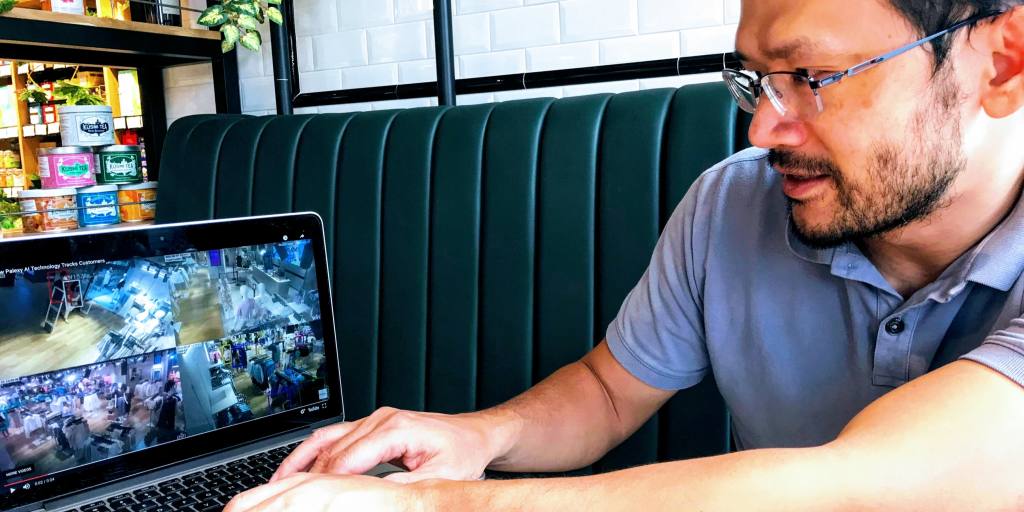HO CHI MINH CITY — Once shoppers enter certain fashion stores or mattress retailers in Vietnam, the cameras roll and the computers get to work — calculating what percentage of people talk to the staff or make a purchase, and dozens of other metrics.
Crunching the numbers for these retail clients is Palexy, one of Vietnam’s few startups bringing machine learning into the physical world and expanding in Asia.
The company compares its services to the data analysis that e-commerce sites already use to target customers, but in real life. It says it helps stores boost sales by taking their camera footage and adding computer vision — the branch of machine learning that enables, say, a Tesla to identify pedestrians.
This approach, however, amasses mountains of data, pushing Palexy and retailers into broader ethical debates, from consent in surveillance to the use of behavioral economics to influence customers.
The startup combines two business mainstays: one online, the other offline. The first resembles the data analytics of companies that track users on their websites to see, for example, what shoppers put in their carts but don’t end up buying, or what the most popular search terms are.
Second, stores have long experimented with tricks to nudge patrons, from placing impulse buys near the cash register to playing slow music that encourages shoppers to browse.
In an era of endless data, Palexy adds computer vision to such analog tricks. One client wanted to figure out why a new line of shoes sold poorly at one store compared to others. So the startup scanned the store’s video footage to chart a “heat map” of how long shoppers spent in each part of the store — they may linger near air conditioning, for example. Based on the data, the client increased sales by repositioning the shoes, Palexy said.
“E-commerce has abundant data insights,” co-founder and CEO Thong Do said in an interview. “But physical stores lack that data insight.”
Do moved back to Vietnam from Silicon Valley after selling his artificial intelligence startup, Arimo, to Panasonic in 2017.
Asia is becoming the center of gravity for AI, he says, though Vietnam lags in the technology of his old home, the U.S., where computer vision powers Amazon cashierless stores and chatbots take orders at drive-through chains.
The problem with practical computer vision — a machine’s ability to identify people and things in images — is achieving accuracy.
Do’s face lit up when he was asked about structured versus unstructured data. The computer engineer grabbed his laptop and pulled up store footage, which is raw data. For computers to make sense of it, they need labeled data. Store managers can label points in the video, from a checkout counter to an aisle with women’s pants. That helps the machines learn to distinguish between people. Someone standing behind the counter, for example, is likely a staff member.
He hit play on the screen, and as customers walked into the store, the software identified one male, age 20 to 30, and put a blue box around him. Palexy has trained its software on 20 million such shopping trips, Do said.
The company plans to expand to the Middle East plus other parts of Asia in 2022 and globally in 2023. It said it operates in six markets, including Japan and Thailand, with roughly 100 clients, from Aldo shoes to Guardian health and beauty stores.
But customers at such retail shops, unlike those at drive-through restaurants, often don’t know that machines are monitoring them. Consent is not really an option as people move between public and private spaces, raising questions about surveillance.
Data collection is inevitable, said Amanuel Flobbe, Ho Chi Minh City-based director of Sunbytes, which helps businesses improve operations with data analysis. Companies face a trade-off, he said, between their drive for efficiency and the ethical use of data, especially if it includes personal information.
“If it’s not anonymous, the risk is there,” he told Nikkei Asia.
When asked if people should be squeamish about all this tracking, Do said the data is anonymized and Palexy deletes client data within 24 hours. He said the company’s main business does not use facial recognition, though a newer service, to identify repeat customers, does.
“We deserve some privacy. We don’t want to be monitored all the time,” he said.
Palexy gives recommendations, and a store decides whether to use them. Some are basic, like how many staffers to assign to a shift. Others get into the realm of behavioral psychology, such as lighting and layout that increase the odds someone will buy a product. The startup said it ran an A/B ad campaign for a Japanese client in Vietnam, for example, concluding that in-store video clips were better than static graphics at luring shoppers to a specific aisle.
It is a question for all marketers: How much are consumers willing to be nudged into buying?
The best balance between customer convenience and privacy varies by country, Do said.
“For each market, there’s an equilibrium point,” he said.
Palexy said its monthly revenues were $50,000 and it aims to break even by April. It raised $1 million from Do Ventures and Access Ventures in a December seed round and likens itself to Google Analytics for brick-and-mortar shops. Many of the shops only recently became converts of big data, which is so widespread online that critics have started to warn of AI or techno “solutionism” — the belief that with enough data, just about anything can be optimized.
For data use in stores, though, it is still early days. Do estimated that Palexy combs through as many as 30 to 40 metrics, such as how many people try on a product or decide to walk in when they see a storefront. The company could expand its technology beyond retail and wants to give clients an e-commerce option by 2022, he said.
“The difference between the physical and digital worlds,” Do said, “will be blurred.”
Credit: Source link






















